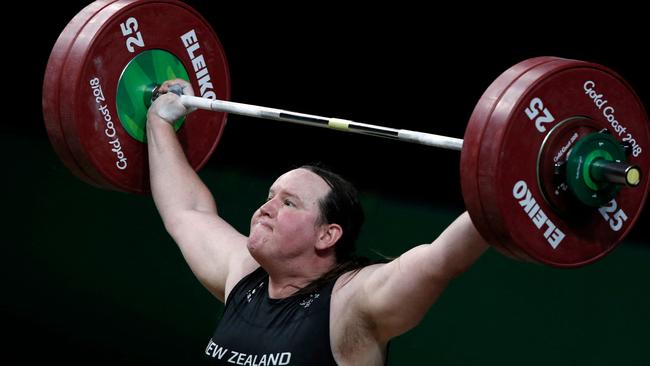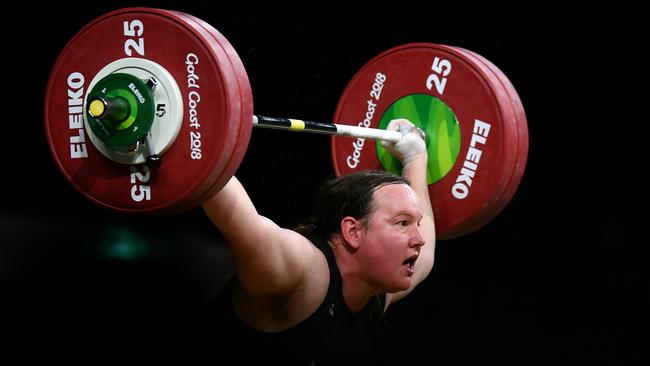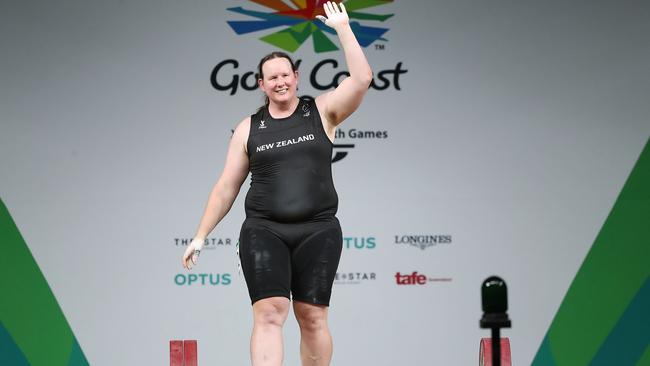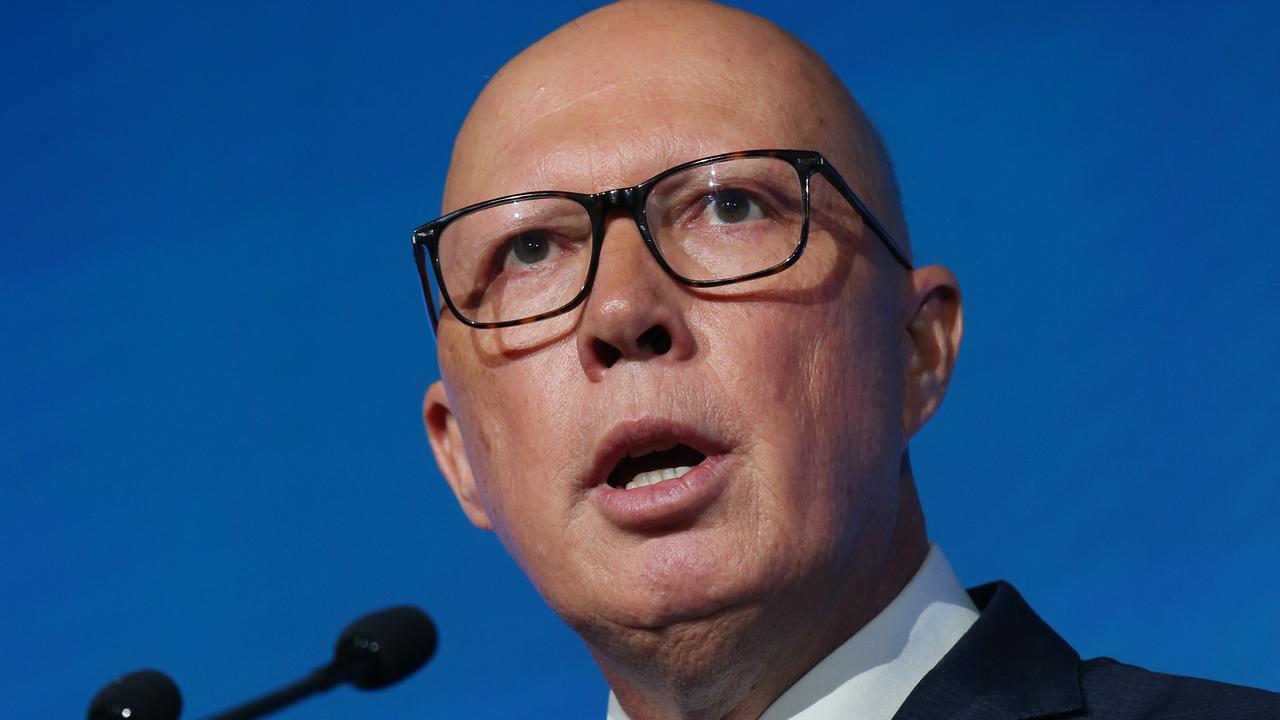Rita Panahi: Let’s not pretend men and women are the same
The emergence of trans athletes has seen even the wokest of the woke saying women’s sport should be for women. But speaking out comes with risks.

Rita Panahi
Don't miss out on the headlines from Rita Panahi. Followed categories will be added to My News.
Imagine for a second that you’re a female athlete, a weightlifter who has devoted your life to the sport, and then a former male weightlifter decides they’re a woman and starts competing in your division.
That is the reality for female weightlifters competing, and losing, against Laurel Hubbard, who is expected to represent New Zealand at this year’s Olympic Games in Tokyo.
Laurel used to be called Gavin and was an elite male weightlifter before transitioning at the age of 35 and competing as a woman.
In 2017 in Melbourne, she competed in her first major international competition and broke a number of national records on her way to winning the women’s over-90kg division.
She came to represent New Zealand after beating Commonwealth Games medallist Tracey Lambrechs, who no longer had any hope of winning in her weight division after Hubbard’s transition.
Rather than compete against an athlete born male — with the physical advantages that come with that, including size, muscle mass and lung capacity — Lambrechs lost 17kg to compete at a lower weight division for NZ. She’s now retired and able to speak freely about what female weightlifters think about trans athletes competing in the women’s divisions.

“We’re all about equality for women in sport but right now that equality is being taken away from us,” Lambrechs said.
“I’ve had female weightlifters come up to me and say, ‘what do we do? This isn’t fair, what do we do?’ Unfortunately, there’s nothing we can do because every time we voice it we get told to be quiet.”
That’s what happens to women who stand up for their rights against the trans movement, they’re told to “be quiet” or attacked and labelled bigots and “terfs”.
That was pretty much the message last week from Hollywood actor and comic Sarah Silverman who scolded female athletes, and even Caitlyn Jenner, for saying women’s sport should be for women.
But we have men’s and women’s categories for a reason. It’s no coincidence that it’s one-way traffic with biological males identifying as female wanting to compete in women’s sport. There are no female-born runners, weightlifters or basketballers identifying as male and wanting to compete against the dudes.
The emergence of trans athletes has seen even the wokest of the woke, the likes of Martina Navratilova, begging US President Joe Biden to change the Executive Order he signed on the first day of his presidency and protect girls’ and women’s sport.
As science writer Amy Alkon points out: “The fastest female sprinter in the world is American runner Allyson Felix, a woman with more gold medals than Usain Bolt. Her lifetime best for the 400m run is 49.26 seconds. Based on 2018 data, nearly 300 high-school boys in the US alone could beat it.”
Hubbard was hot favourite to win gold at the Gold Coast Commonwealth Games in 2018 before being forced out injured.
At the time female competitors were perturbed by her inclusion but most were cowed into silence.

The Samoan head coach spoke for many when he called out the absurdity of allowing Hubbard to take part in the women’s competition.
“A man is a man and a woman is a woman and I know a lot of changes have gone through, but in the past Laurel Hubbard used to be a male champion weightlifter,” Jerry Wallwork said.
“The strength is still there and I think it’s very unfair … (it’s) been accepted by the IOC, but that won’t stop us from protesting, regardless of whether it’s against one of our lifters or not.”
Last year Hubbard won gold at the Weightlifting World Cup in Rome and will be favourite to win gold at the Tokyo Games in July despite being the oldest competitor in the field.
It’s sad that this needs to be said but men and women are different and pretending otherwise only disadvantages women.
Biology doesn’t care about your feelings or pronouns.
Rita Panahi is a Herald Sun columnist



